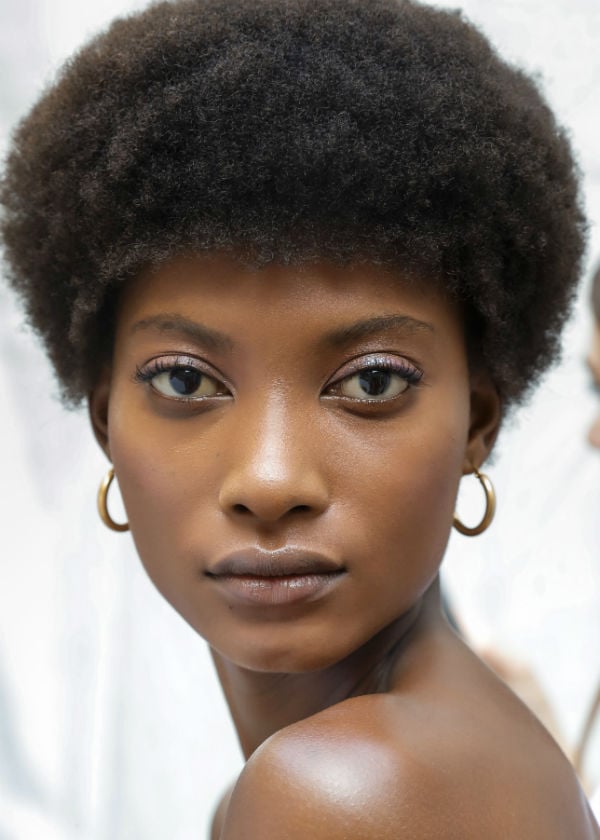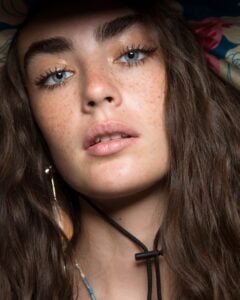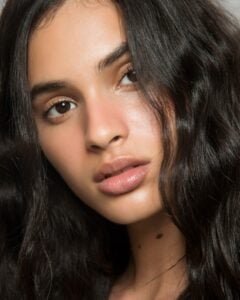Our beauty shouldn’t come at the expense of other living creatures, and yet, our products are filled with animal byproducts and even tested on our furry friends. But as more people share in the belief that animals shouldn’t be mistreated for our own needs, the vegan skincare movement grows.
Vegan skincare takes the guesswork out of ethical purchases. In this guide, we consult with Founder of vegan brand Formulary 55, Cordelia Smith, to unearth the truth behind animal cruelty in the beauty industry and tell you all about how the vegan movement is changing the rules.
ANIMALS & BEAUTY
Animals are negatively affected by the beauty industry in 3 principal ways: the testing of cosmetics on animals, the use of animal and animal-derived ingredients in cosmetics, and the impact of cosmetics on the environment.
ANIMAL TESTING
Animal testing involves procedures and tests performed on living animals. Researchers subject animals to these procedures in order to test product effectiveness as well as any potential impacts on human or environmental health and safety. Mice, hamsters, rats, guinea pigs, rabbits, birds, fish, cats, dogs, and primates are the most common animals used in testing, but it’s believed that over 115 million animals worldwide are used for animal testing every year. All of these experiments have the potential to cause severe physical and psychological distress or suffering.
ANIMAL INGREDIENTS
There are 2 different kinds of animal ingredients: ingredients made from animals and animal by-products. Ingredients made from animals include items like:
- Squalene – comes from the liver of a shark
- Tallow – aka rendered animal fat
- Gelatin – the boiled skin, tendons, bones, and ligaments of animals
- Hyaluronic acid – made from the combs, giblets, and eyeballs of roosters
There are, however, plant-based and vegan versions of both squalene and hyaluronic acid. Items such as gelatin and tallow can be replaced with vegan-friendly alternatives that are rich in fatty acids, such as coconut oils and vegetable fat.
An animal byproduct, on the other hand, is a material of animal origins such as honey and beeswax. Though the ingredient isn’t made of animals, per se, it’s made by the labor of animals. Both animal ingredients and animal byproducts can be describing as animal-derived ingredients.
ENVIRONMENTAL IMPACT
But perhaps the least considered impact of cosmetics on the animal kingdom is the way in which non-vegan products impact the environment. “For example, the use of beeswax in many conventional products actually causes harm to bees”, which are the world’s most important pollinator of food crops. From an environmental standpoint, Smith says: “Although they freely give up the wax, it’s impossible not to kill a few bees while harvesting the beeswax. And we have to save the bees if we are to save our environment!”
VEGAN BEAUTY
Vegan cosmetics and skincare are a natural extension of ethical veganism. Based on the same principles as the dietary vegan movement, vegan cosmetics and skincare products are those that don’t contain any ingredients derived from animals. This includes both animal ingredients and animal byproducts.
But the vegan beauty movement is growing alongside the clean beauty movement. Meaning that some people are turning to vegan products for health reasons instead of ethical motivations. As we become increasingly aware of the health risks and consequences of traditional ingredients, these consumers are seeking more natural, plant-based alternatives. For many of these consumers, vegan is synonymous with the clean beauty movement. According to Smith, they’re right in some cases: “many of the animal by-products commonly found in mass-produced skincare can cause skin issues, such as clogged pores. For example, lanolin is a popular ingredient in moisturizers, but it tends to be very heavy and irritating.”
And while the vegan movement is officially only concerned with animal-derived ingredients, ethical vegan companies also consider cruelty-free and eco-consciousness important components of the movement – and by extension, their formulas and products. For example, you may think that a brand that abstains from using animal-derived ingredients would also be concerned with protecting the homes of said animals. But some vegan companies may use palm oil in their formulas – an ingredient that’s linked to climate change, deforestation, and habit degradation. Ultimately, what’s morally and ethically acceptable for you is up to… well – you.
VEGAN, VEGETARIAN & CRUELTY-FREE
Vegan, vegetarian, and cruelty-free… three terms that are based on similar principles but differ greatly in practice.
You might expect that ‘vegan’ implies a product that wasn’t tested on animals, but that’s not necessarily the case. A product might be free of animal-derived ingredients but still tested on animals – and vice versa.
A product marked ‘vegetarian’ also doesn’t meet the definition of vegan, because it can contain animal by-products. Smith explains that “vegetarian products may contain animal by-products such as milk, honey, beeswax, or lanolin. Where vegan products don’t contain any animal by-products whatsoever.”
Check out our guide to discover some of our favorite vegan eye creams.
CERTIFICATION & REGULATION
There’s no actual regulation or law that standardizes the definition of the word vegan. Luckily, there are a number of 3rd party certifiers that you can look for:
- PETA’S Cruelty-Free and Vegan logo: certifies that the product is not tested on animals and that the finished product doesn’t contain any animal ingredients. Note that PETA’s Cruelty-Free logo certifies that the product is cruelty-free, but not that the product is vegan.
- The Vegan Society: made without animal-derived ingredients and not tested on animals.
- Choose Cruelty-Free: products are made with vegan ingredients and aren’t tested on animals. In order to qualify, all subsidiaries and suppliers for the product also have to be cruelty-free and vegan as well.
- Vegan Action/Vegan Awareness Foundation: certifies that a specific product is both vegan and cruelty-free.
Because it’s a trending category of consumer products, there’s no shortage of companies trying to exploit the extremely profitable claim that their product is vegan – which is why Smith warns, “In order to ensure you are getting a truly vegan product, you want to look for the ‘certified vegan’ label on the packaging. But another great option is buying from a company you trust.”
THE FUTURE OF ANIMAL- FREE BEAUTY
In some countries, animal testing is a legal requirement. In others, like Canada and the US, it’s not a specific requirement but is still widely practiced. Despite the fact that there are alternatives to inhumane animal testing procedures. There are also plenty of vegan alternatives to animal-derived ingredients like hyaluronic acid and beeswax, but, like animal testing, the unethical and conventional methods are more cost-effective and profitable.
But we’re making progress. Take for example the EU banning animal testing in the cosmetics and beauty industry in 2009. And Smith informs us that things are going to continue changing: “As consumers become more and more educated, there will also be more and more pressure on the larger skincare and cosmetic companies to remove all animal by-products from their ingredient lists. The rise of small indie brands has done wonders for this, causing the big guys to start to clean up their acts, one by one.”
But don’t forget that your dollars count for something, too. When you choose to purchase an ethical brand instead of your not-so-ethical go-to fave, you’re sending an important message to the industry. And as more of us make that conscious decision, the ethical beauty movement – including all things vegan – is bound to become the new norm.



